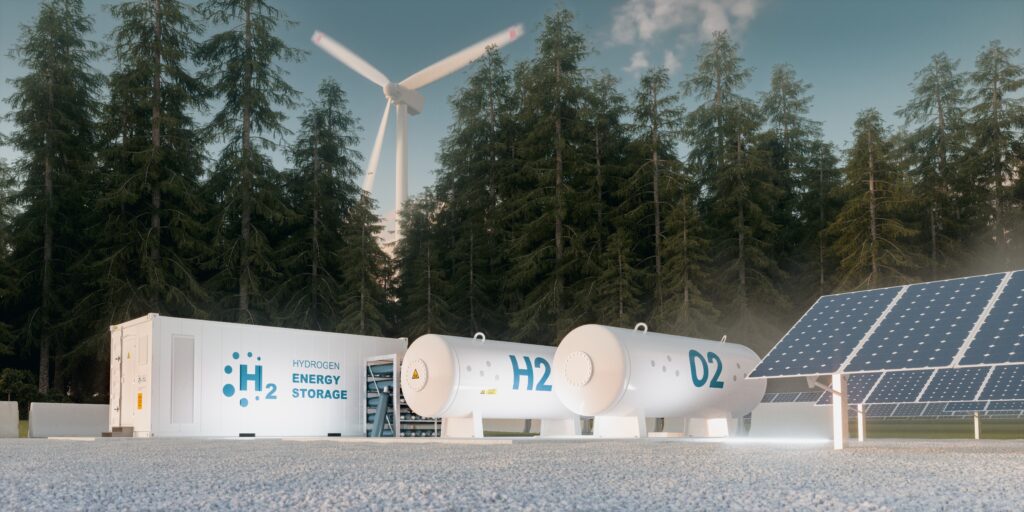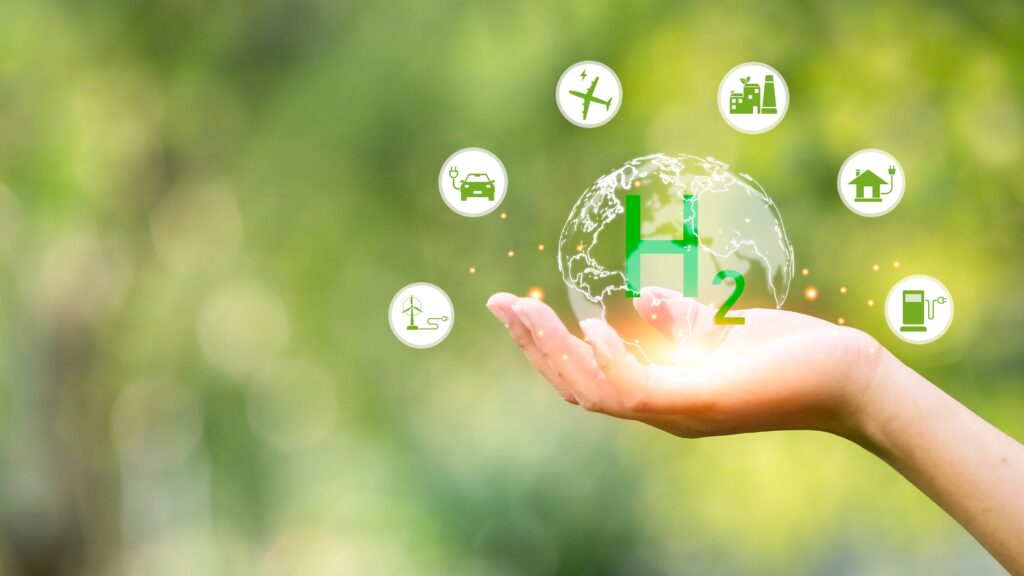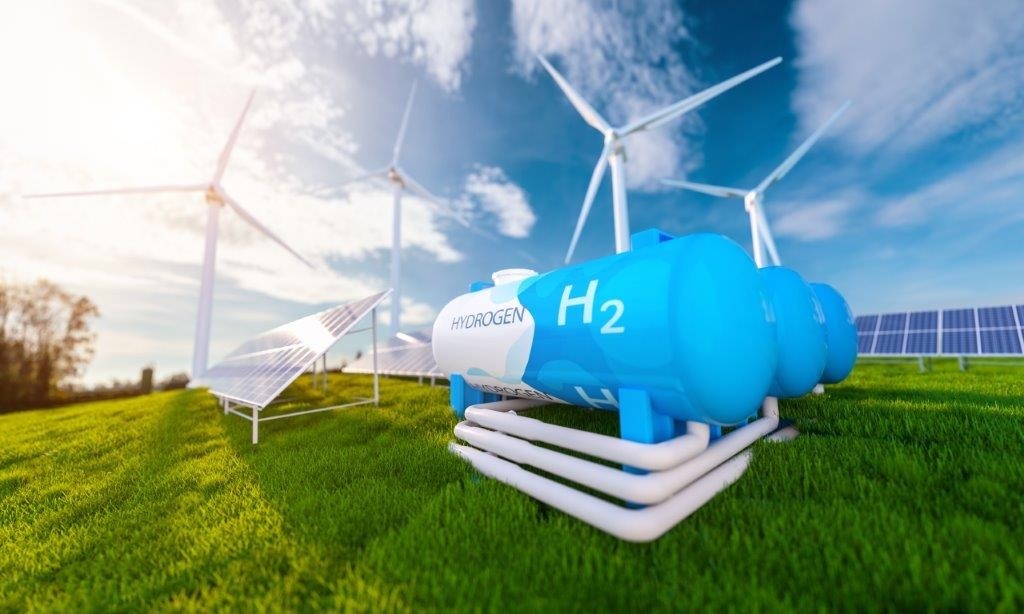The Hydrogen Current in the Netherlands is Intensifying, Making Waves to Surf Towards the Zero-emission Economy
As the contours of the carbon-neutral economy start to appear on the horizon, the case for investing in the green hydrogen value chain is only gaining momentum. That much is clear after watching the highly informative webinar “The Netherlands’ Hydrogen Market: From Research to Demand” hosted recently by Invest in Holland. The country is ideally positioned to get the green hydrogen market off the ground and is investing significantly in its hydrogen ecosystem. This can form a critical enabler for the zero emission economy across the world and provides ample opportunities for international companies operating in the hydrogen supply chain.
Excellent position for hydrogen business
The starting point of the Netherlands for propelling the hydrogen market into maturity is unique. Here are some assets the country builds on:
- Market demand: The Netherlands is the 2nd largest producer of (grey) hydrogen as well the largest consumer per capita. This is due to the large industrial use of hydrogen in refineries and the fertilizer industry in the Netherlands.
- Infrastructure: Because of its domestic gas supply, the Netherlands has a 136,000 km pipeline that extends into Germany and will be ready for hydrogen distribution by 2027.
- Renewable energy: The Netherlands is extending its offshore wind capacity to 21 GW in 2030 and 70GW in 2050. The Dutch energy sector is strongly focused on clean energy.
- Logistics: The Port of Rotterdam is Europe’s largest port, and is excellently connected to inland Europe. The port has a long legacy as an energy and chemicals hub, and is pioneering with hydrogen projects.
- Engineering excellence: The Netherlands has very reputable engineering standards and an extensive high-tech ecosystem. What is developed here meets the quality standards in nearly any other country without question.
- Manageable size: The Netherlands is a small country with an excellent infrastructure and a culture of strong networks and collaboration. This enables developments to take place in parallel without losing oversight. It also enables the Dutch to effectively develop hydrogen as an integral part the energy mix. Hydrogen-based solutions developed here can therefore be expanded to other regions as a one-stop-shop proposition.
Developing the trade market for hydrogen in the Netherlands
Thorough analysis of the energy market and intelligence-based predictions of future market dynamics for hydrogen by HyXchange demonstrate a relatively constant demand after 2030, against a fluctuating supply. Although the demand for hydrogen is currently stable, that is expected to change as some current grey hydrogen users will switch to importing green ammonia.
On the other hand, the use of hydrogen by industry is incentivized to reduce carbon emissions by the largest polluters. And at a European level, regulations, certification schemes, and targets have been set to stimulate the demand for hydrogen. This will create a much more stable market for hydrogen by the end of this year.
HyXchange is an initiative supported by public organisations Gasunie, Port of Rotterdam, Port of Amsterdam, Groningen Seaports, North Sea Port and a growing number of market parties. The HyXchange initiative is developing a trading platform for hydrogen on the main Dutch hydrogen infrastructure, including the global imports there and the European countries associated with it.
“Our analyses of the hydrogen playing field are based on extensive experience on the energy trade market, both in electricity and natural gas”, says Bert den Ouden, project director of HyXchange. “To establish a well-functioning trade market, we are currently also running pilots with certification based on the EU guidelines which are currently not mandatory. The certification will include information about origin and quality of traded hydrogen,” Den Ouden continues. Having an effective trade market for hydrogen in place, will make business much easier and accelerate developments on both the supply and demand side of the hydrogen ecosystem.
Securing dependability of hydrogen supply
The Netherlands has allocated €800 million to electrolyzer innovations, to achieve the 4GW capacity planned for by 2030. An important part of this innovation is taking place in Europe’s largest open test facility for hydrogen, the Faraday Innovation Lab in Petten, north of Amsterdam. At the facility, which has attracted numerous partners from around the world, a ‘Gigawatt electrolysis factory’ is being developed.
At Han University of Applied Sciences, where Leo Polak, Associate Lecturer Balanced Energy Systems researches various production technologies, transportation, storage and direct use of hydrogen, four electrolyzer concepts have center stage. Research on electrolyzers is focused on next gen solutions for proton exchange membrane (PEM), anion, alkaline and high temperature electrolysis technologies, in particular to maximize output capacity, increase longevity and minimize the use of scarce materials. To accelerate innovation and time to market, Polak participates in the public-private hydrogen consortium GroenvermogenNL, where companies, researchers and authorities collaborate on hydrogen innovation projects.
Another participant in GroenvermogenNL is VDL, a large high-tech manufacturer of industrial, automotive and food processing equipment with 17,000 employees and €5.5 bln in sales. VDL Energy Systems started developing its own electrolyzer in 2022, with a focus on alkaline and solid oxide as its main technologies. Its 50kW alkaline electrolyzer pilot, can now be expanded to 10 MW.
“We have discovered that the supply chain for electrolyzer components in the Netherlands is well-developed, which is a great asset for effective innovation and commercialization,” says Marius Ponten, Innovation Director at VDL. “For particular processes and components, we could not find suppliers in the Netherlands, and we are happy to facilitate foreign companies with these capabilities to join our high-tech ecosystem.” These include suppliers of the components for the stacks (electrodes and membranes), large-size injection moulding and electroless nickel plating needed for the stacks and the gas-liquid separators.
International hydrogen networks to make the world benefit
“We are simultaneously developing an international network of (future) hydrogen suppliers as well, specifically in countries with higher renewable energy yield”, says Han Feenstra, Coordinator of International Hydrogen Policy at the Ministry of Economic Affairs and Climate. The prediction is that 50% of green and blue hydrogen on the Dutch market will be imported. “We are adamant to make sure that these trade relationships contribute to meeting the Sustainable Development Goals. The Netherlands has therefore joined forces with several other countries in the International Hydrogen Trade Forum, supervised by the United Nations” says Feenstra.
Because of the large amount and variety of hydrogen projects taking place simultaneously in the Netherlands, which is necessary to get the hydrogen market up and running in a timely manner, a complete overview has been created where all projects can be seen on a map. Part of the strategic plans are also salt caverns and other storage facilities for hydrogen, which will be necessary to maintain healthy buffers of hydrogen and balance supply.
Are you ready to ride the waves of the hydrogen current? Get in touch with the Invest in Holland energy team to discuss how we can assist you with tuning in to the Dutch hydrogen ecosystem and explore business opportunities in the Netherlands!
25 April 2024

